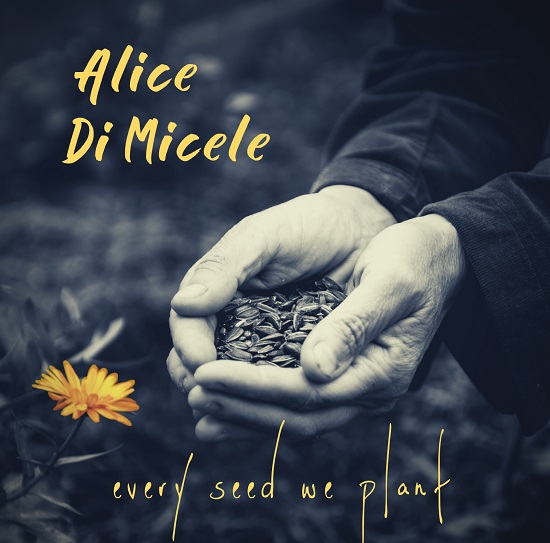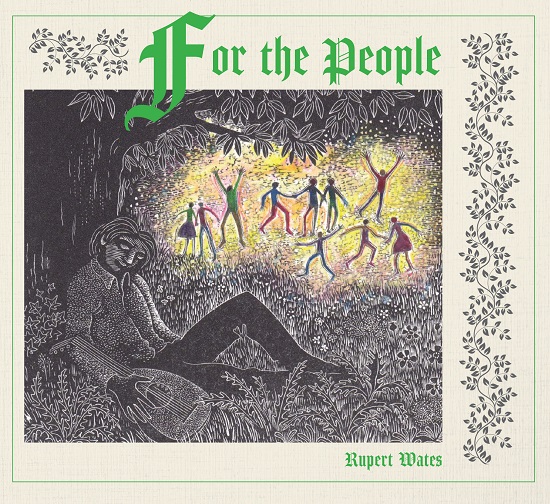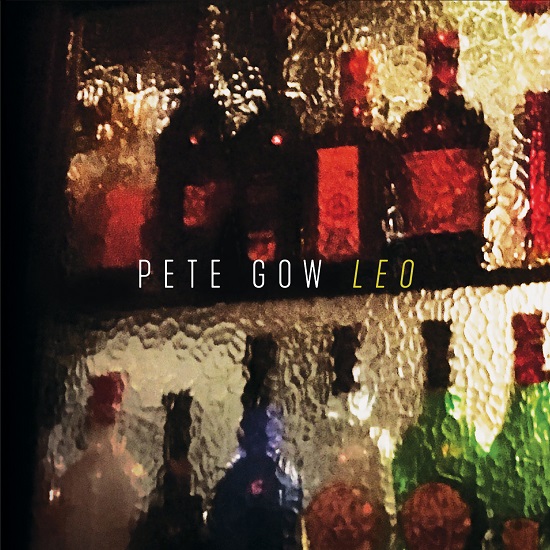
Three decades in the business and fifteen albums is quite an impressive achievement. ‘Every Seed We Plant’ is the next step; album sixteen. The good news is that Alice’s creativity is undimmed after that time and her voice is still as powerful as ever over the whole of its wide range. The album displays a wide range of styles from the slow country waltz feel of ‘Sweet Elaine’ to the soulful rock of the album’s opener ‘For Granted’. The styles may vary but there are several themes related to the last two years running through the album that create a sense of unity across the piece. Apart from the obvious references to grief, there’s anger, redemption, joy and a sense of rebirth. The album’s opening and closing songs both have references to planting and nurturing.
The two songs that best demonstrate the emotional range of the album are ‘Dispatch’ and ‘Sweet Elaine’. ‘Dispatch’ is a very angry song about the real events that led to the killing of a black retired Marine, Kenneth Chamberlain, in his home in White Plains, New York. The story’s told from the point of view of the dispatcher responsible for sending the police to activations of LifeAid medical alarms, who was called by Chamberlain asking the police to withdraw. It’s a very angry song about something that’s still way too common in America today, told in a very compelling way. ‘Sweet Elaine’ is a slow country-rock waltz telling the beautiful story of a woman and a dog who profoundly change each other’s lives. The slight vibrato on the vocal and the Eagles-style vocal harmonies create a happy and relaxed feel that perfectly matches the positive narrative.
The album opens with ‘For Granted’, a soulful rock groove in a seventies style that evokes Maggie Bell or even an in-tune version of Janis Joplin. It nods in the direction of Etta James’s ‘I’d Rather Go Blind’ (the unnecessary cover of choice for many a second-rate blues-rock band) with a rock band line-up including organ and piano (with the obligatory triplets of course). Alice’s voice is so versatile that there are comparisons to be made with Joni Mitchell, Rickie Lee Jones and many others. The band arrangements are equally diverse, with ‘Jersey’, not surprisingly, having a hint of the E Street Band as it takes a hammer to the New Jersey stereotypes that Alice has probably heard for most of her life.
As a whole, the album takes a journey through the various stages of recovery from the pandemic and its associated woes from grief to rebirth, with the final two songs, ‘Sweet Elaine’ and ‘’Every Seed’ looking forward to a more hopeful future. It’s a lovely example of creating beautiful art from unpromising raw materials.
‘Every Seed We Plant’ is out now in the UK on Alice Otter Music (AO116).
Here’s the video for the title song:

There’s a play on words in the title of this album; you can exchange the word “people” for “folk” and the literal meaning doesn’t change, but some new layers are added. Rupert Wates recognises this in a press release quote where he describes folk music as: “music of the people, by the people, for the people”. The album is a return to Rupert’s English folk roots, a celebration of his supporters and a celebration of the themes and traditional tales that run through the history of the genre. The celebration takes the form of a set of songs created in the folk idiom, using familiar themes and delivered with acoustic guitar backing and very little else apart from a bit of fiddle and some additional vocals.
The stripped-back delivery affects the structure of the songs as well. The guitar playing, accomplished as it is, isn’t there to bedazzle; it’s there to underpin and counterpoint the melody and enhance the message of the song. Without guitar solos or instrumental breaks, there’s room for the lyrics to take as long as it needs to get to the end of the story, while including traditional elements such as line repetition and call and response.
There’s a feeling that the album isn’t so much about the individual songs, but more about using the building blocks of the genre (the powerful narratives, the murder ballads, smuggling, stories of war and the mythical to create authentic but completely new songs in the folk idiom. This project in other hands could have become a pastiche, but Rupert Wates is much too good a writer and performer for that. He expertly marries intricate guitar parts to beguiling melodies to create a fascinating collection of songs that pays tribute to his folk roots.
The album’s ten songs (twelve if you split the two medleys into their component songs) are all well-crafted pieces of work but you can pick out two or three to represent the overall feel of the album. The high register picking on the ‘All the Fair Ladies’ leads into a wooing song with an additional call and response female vocal. After a short instrumental bridge, it’s straight into another call and response song on the theme of the spurned lover with some additional vocal harmonies. ‘Oh Captain’ is the mythological song of the bunch telling the story of a captured mermaid despite to return to her family, while ‘The North Road’ is a murder ballad relentlessly pushed on by a relentless fast finger-picked rhythm as it tells the story of the murder of a drummer boy and its inevitable outcome.
‘For the People’ is a neat celebration of the Engish folk style, created by a singer-songwriter with a huge knowledge of that genre. Rupert Wates is a master of his craft and he’s produced a lovely tribute to the genre and his fans.
‘For the People’ is out now on Bite Music (BR12116).

‘Leo’ is the third instalment in the ongoing collaboration between songwriter Pete Gow and multi-instrumentalist Joe Bennett. The previous two albums ‘Here There’s No Sirens’ and ‘The Fragile Line’ have a signature sound that features Joe’s string arrangements; on this album, he’s moved further back into the orchestra to add some horns to the mix, creating a wider palette and a much punchier sound to frame Pete’s (mostly) personal songs. The songs are given a widescreen treatment that nods in the direction of “Born to Run”-era Springsteen, but there are a few other comparisons that maybe aren’t so obvious.
In 1978, a Scottish songwriter living in London released an album featuring a few songs about working in the music business and the characters touching it at tangents that you meet in bars and clubs. ‘City to City’ was a classic Gerry Rafferty album, marrying classic songwriting with interesting arrangements and “Where Would We Be Going” is in the same mould, creating perfect settings for the emotional tug of Pete’s soulful vocals.
The album’s eight songs (‘Where Else Would Be Going?’ tops and tails the album in an upbeat and then a more reflective version) all reward repeated listens. There’s a lot to recommend and to write about every song, but I’ll concentrate on three that cover most of the bases.
‘Side III of London Calling’ is a seedy story of a musician trying to get wired and laid after the gig’s over, set against a mid-tempo groove that nods in the direction of The E Street Band. It’s authentic and gritty and compares the perfection of the woman being pursued to, guess what, ‘Side III of London Calling’. The lyrics keep your attention as wait to hear the outcome and the tune is an absolute earworm. There’s a hint of Elvis Costello/Sam & Dave with a falling down reference and a classic turnaround in the final chorus when the central character describes himself as “just about as welcome as Side V of Sandinista”. It’s great fun.
‘Leonard’s Bar’ is another beast entirely; it’s the centrepiece of the album, it clocks in at over seven minutes and it’s not autobiographical unless Pete has a secret career as an armed robber that he’s not telling us about. It’s difficult to resist the comparison with The Boss’s ‘Meeting Across the River’ as the story unwinds of the career petty criminal coaxed into one last job. The song weaves its way through tempo changes as it builds to the heist section before closing out with The Leo Horns.
‘The City is a Symphony’ is a Joe Bennett co-write that uses the full dynamic range offered by a rock band plus horns and strings as a setting for a lyric that intertwines the pathos of the present with a flashback to a time with a former lover. Joe’s arrangement blends all of the instrumental elements perfectly to create a symphony in miniature that blends seamlessly into the final song, the reflective version of ‘Where Else Would We Be Going?’.
‘Leo’ is a marvellous combination of the important elements of songwriting and production, pulling in ideas from all over the place, including musical references from The Clash to Clapton to create an album with earworms aplenty and a wide range of musical textures that emphasise the power of the lyrics. I’ve not reviewed a better album this year.
‘Leo’ is released on Friday April 22nd on Clubhouse Records.
Here’s the album’s opening single ‘Where Else Would We Be Going?’:


